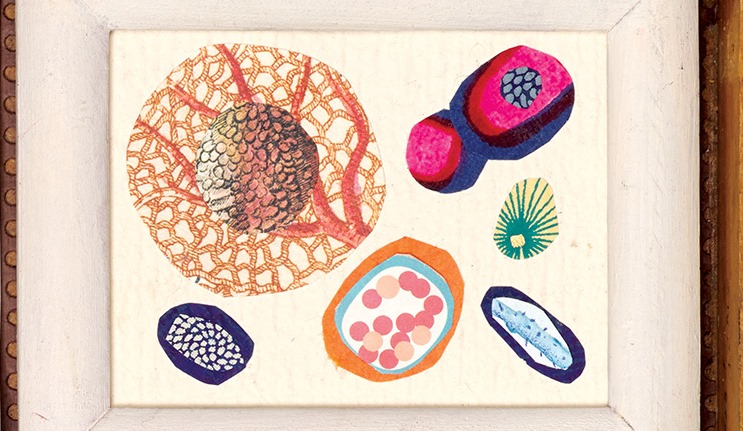
RESEARCH NEWS
The next level of early diagnosis
It’s a known fact that early detection of diseases saves lives. If, for instance, doctors could diagnose cancer when malignant cells are first developing, treatment could begin before they do any harm. Macquarie researcher Dr Dayong Jin, the Australian Research Council Future Fellow at Macquarie’s Advanced Cytometry Laboratories, is at the forefront of the creation of hypersensitive molecular probes that promise fast, non-invasive and low-cost detection of diseases and pathogens.
The key to early detection of any disease is singling out a relatively small number of cells, bacteria or chemical markers in a large sample. Jin’s team has developed photo-detection technology that blocks out background ‘noise’ created by other cells and chemicals in the sample. In addition, work with Professor Tanya Monro at the University of Adelaide’s Institute for Photonics and Advanced Sensing has dramatically strengthened the signal generated by the crystals under infrared light by placing thousands of emitters on each one.
The super-small nanocrystal probes are known as SuperDots™, and can be designed to latch onto specific cells or chemicals. When combined with a blood or urine sample and placed under an intense infrared light, they then emit a predetermined colour that will let the doctor know you are ill, even in a disease’s early stages.
Jin says the fight against prostate cancer, for example, would benefit enormously from the nanocrystal technology. “If we have a low-cost and accurate test for prostate cancer, patients could be tested regularly, every few months, by providing their urine. If the test is non-invasive, people will be more inclined to take it,” Jin says.
Current prostate cancer tests detect the presence of prostate specific antigen in the blood, but its value has been called into question by a high number of false-positives (detecting cancer that isn’t present) and false-negatives (missing cancer that is present). Jin says a SuperDot test would address this problem by targeting a protein that is present in the cancer cells themselves.
Last year, with the assistance of an Australian Research Council Linkage Project grant, Jin’s team began working with two Australian biotechnology companies, Minomic International Ltd and Patrys Ltd, to develop diagnostic kits for prostate cancer and multiple myeloma cancer. Their goal is a simple, hand-held device that would collect data from samples and transfer it to a lab for analysis by mobile phone.